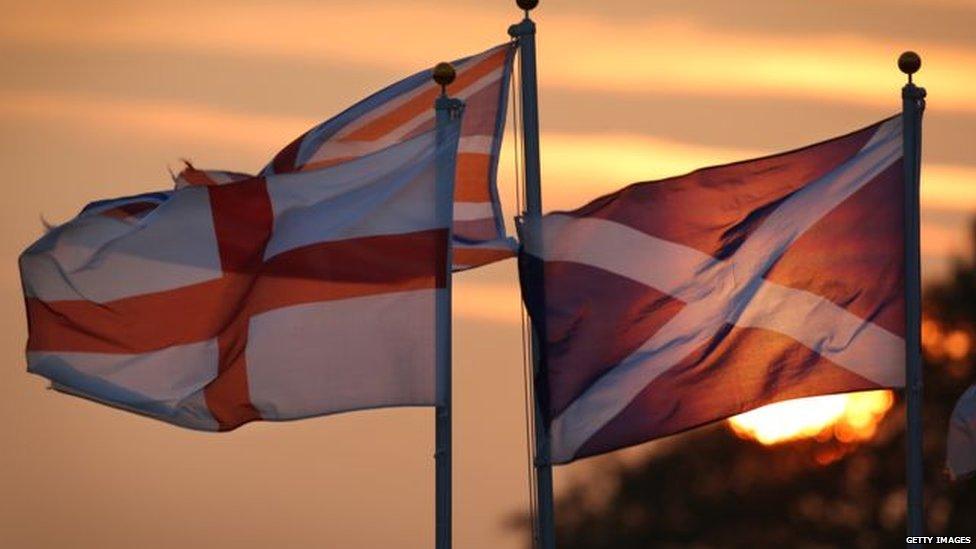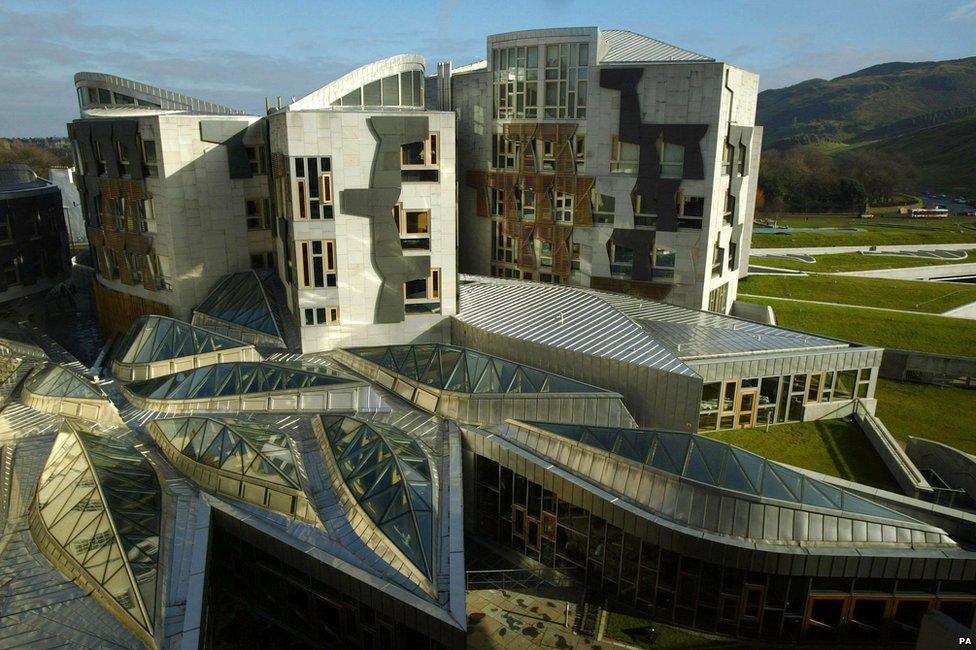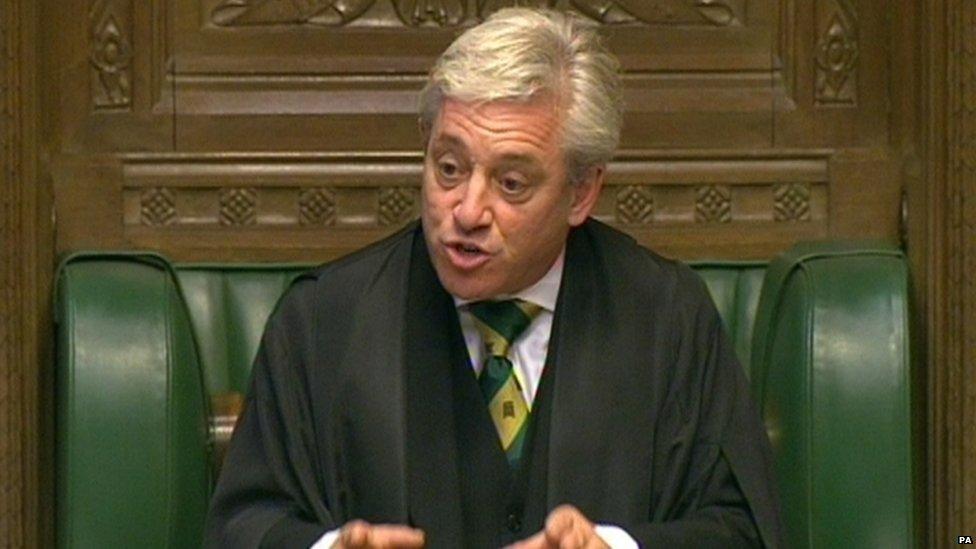English votes for English laws explained and why Labour and SNP oppose it
- Published

A change to how new English laws are brought in is under way.
The Conservatives want English MPs to have more control over "English only" laws, with issues that don't affect Scotland.
But Labour and the Scottish National Party (SNP) oppose it because they say it "alienates" Scotland in parliament.
Politicians in the Scottish parliament at Holyrood were offered more power over "Scottish only" laws.

When and how will 'Evel' happen?
The Conservatives want the process called Evel (English votes for English laws) in place in time for the 2016 budget.
It means English MPs would get a chance to "veto" or "say no" to an English law, midway through the process of making it in the House of Commons at a new stage called the grand committee.
It would allow English, or English and Welsh, MPs to scrutinise bills without the involvement of Scottish MPs.

At the Scottish parliament building in Edinburgh, MSPs debate devolved powers such as housing, law & order and health
However, Scottish MPs, along with the rest of the House of Commons, will get a final say in making laws.
What is the West Lothian question?
Ministers say Evel will address a long-standing anomaly - known as the West Lothian Question - by which Scottish MPs can vote on issues such as health and education affecting only England - or England and Wales.
But the House of Commons or English MPs have no such power over Scotland, where policies were devolved in the 1990s.

It will be for House of Commons speaker John Bercow to decide whether laws apply just in England
It's called the West Lothian question because the original question was posed by Labour MP Tam Dalyell in 1979, whose constituency used to be called West Lothian.
He asked how it could be right that a Scottish MP at Westminster could vote on matters such as education affecting English seats - but that same MP couldn't vote on such matters affecting his own constituency because they'd have been devolved to a Scottish Parliament.
There's more at BBC News if you want a in-depth explainer.
Someone called it an unworkable dog's breakfast?

SNP MP Pete Wishart has called it "an unworkable dog's breakfast" that had no support.
He said it would "make Scottish MPs second class in the unitary UK parliament".
The difference between an MP and an MSP?
An MP sits in the Houses of Commons and votes on laws passed there.
An MSP (Member of the Scottish Parliament) sits in the Scottish Parliament at Holyrood.
MSPs have decided to go down a different route on tuition fees in Scotland where students don't have to pay.
In the rest of the UK (England, Wales and Northern Ireland), students have to pay for university tuition fees.
Follow @BBCNewsbeat, external on Twitter, BBCNewsbeat, external on Instagram, Radio1Newsbeat, external on YouTube and you can now follow BBC_Newsbeat on Snapchat